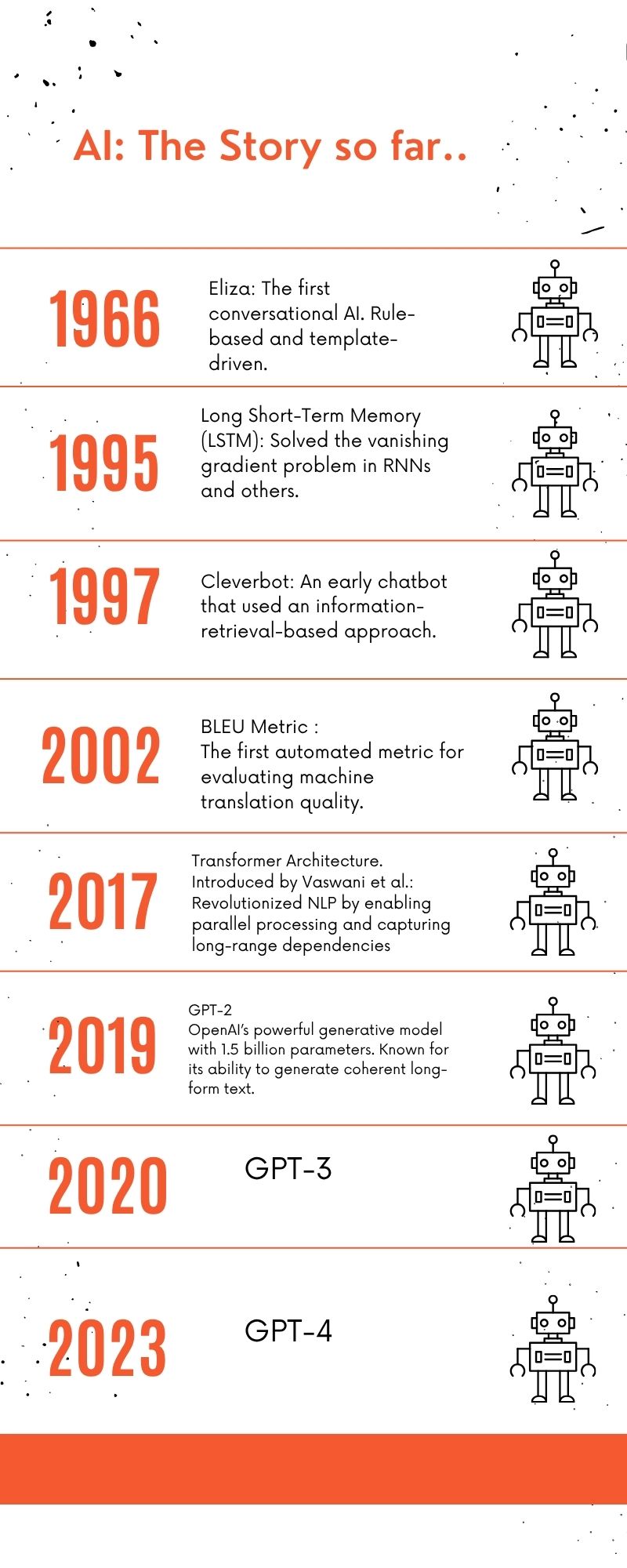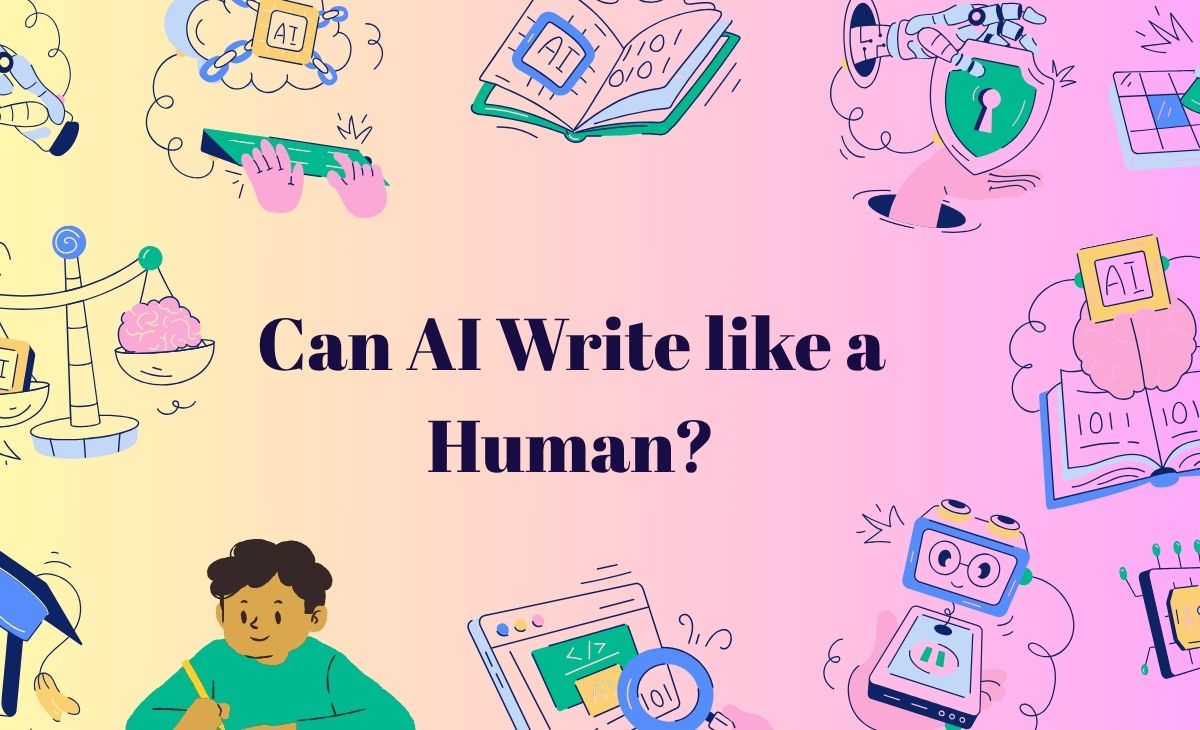Our years of research and commitment to AI are finally beginning to show the fruits of our labor. We are now operating in a space that’s becoming more accepting of AI’s creative voice. However, there is always a question that lingers: Can AI write like a human someday?
At present, AI’s progress appears impressive, but it comes with its own set of challenges. Be it the lack of a personalized approach or a sense of empathy, a Human-sounding AI tool is yet to make its mark.
Still, with the growing demand for AI in marketing, customer support, entertainment, and many other areas, our search for the ideal remains an ongoing process. This blog is a closer look at our progress with conversational tone in AI writing to date, and the possibility of its extent.
What is Humanized Content?
Have you ever wondered how to call out AI-generated writing at an instant? If you take a closer look, you will realize that it is more than just the rigid structure. AI-generated content lacks layers of emotions, lived experiences, and a firsthand understanding of the pain points.
The human touch in writing is always about having a personal voice or tone that assures it is coming from a place of experience. But with AI, it is collated facts and figures backed by a straightforward narrative. You will feel like reading a series of facts that offer no space for any emotion, whatsoever.
AI supporters will definitely highlight that you can always refine the results generated by AI with your prompts. But what they tend to miss is that its lack of contextual awareness makes the entire situation somehow awkward and tiring. The fine details that distinguish human writing from artificial intelligence are simple:
- Subtext and Nuance: Reading a human piece of content doesn’t feel like going through Wikipedia or an instruction manual. It has cultural context, humor, irony, and every smart use of literary mediums to build a point.
- Adaptability: A human writer knows when to be casual and when to put up their guard. This is also one of the many reasons why human writing is versatile and accommodates a large scale of audience.
- Emotional Connect: We humans have contextual awareness, which helps us build an easy emotional connection with our readers. Not only do we understand the pain points better, but we can also offer viable solutions from lived experiences.
- Uniqueness: AI operates with datasets, which restrain it from going beyond a certain framework or style of writing. In fact, it is only known to provide traditional solutions to an issue. But it is different with us, we are versatile and quick with possibilities. The lack of a unique approach in AI-generated writing makes it sound all the same after a certain point.
How Far Has AI Writing Come?
At this point, it will be a bit unfair to only say that AI has a lot of catching up to do. It is more about understanding how greatly it has evolved. The narrative needs to focus more on how far AI has come at this point. The artificial intelligence journey began as a mere grammar checker and is now on the way to replace a writer.
But to actually understand the impact of AI-generated content, you have to take a quick look at the available statistics. To begin with, the numbers this year look promising, and it is predicted that the AI market size will reach US$244.22bn in 2025.

The true test of an AI’s ability to write like a human depends on how advanced its natural language generation capabilities are. The NLG refers to a bunch of AIs like ChatGPT, GPT-4, Claude, etc., and their ability to form human-like text from structured texts.
To put it in simpler terms, NLG is what determines how efficient an AI model is when it comes to text creation, summarization, mimicking tone and emotion, and does so much more. To help you understand this in a more refined way, I had asked ChatGPT to generate a quick introduction to this blog itself. This is how it went:

ChatGPT prompt
The takeaway from this is simple:
🚨AI can assess any given prompt.
🚨It excels at structure and grammar.
🚨You will find that AI’s contextual awareness is very limited.
🚨The tones and patterns in the write-up feel more like a research paper.
🚨 As it is dependent on its datasets, you will never find AI breaking the set structure in its writing.
Side-by-Side: AI vs. Human Writing
The reason AI is always going to be relevant, regardless of its tendency to repeat patterns, is its scalability. It will be difficult for AI to wipe out human creativity, as, firstly, the intended nature of AI’s existence was never meant to be this hostile.
Secondly, since it lacks any consciousness, it is always going to be saturated after a certain point. But if we look at it objectively, it's still the closest we have come to a creative companion.
At this point, it is safe to say that AI can be a great stepping stone to fix the lack of manpower or budget. Think about it this way, the concept of pitting us against AI is always going to be futile, as we will always have the upper hand in creativity and originality.
But when it comes to scalability, mass production, and quick research, we will always fall short. AI might not be able to write like a human, but it can surely compensate adequately. This is why you will always find a debate being fueled on the AI vs. Human side.
🚨But what if I tell you, there is always a safe middle ground in this debate that doesn’t rely on robotic narratives or restricts your scalability. With Humanize AI you have the ideal way to convert any machine-generated text you want in a matter of seconds.
With no apparent restriction and its capability to understand human nuances, it makes it a safe and efficient option. Here is a quick look at its capability of converting the same text as used in our previous example.

Humanize AI generated result
We may never be able to settle the AI vs. human debate. But a middle ground like Humanize AI is a favorable and informed choice owing to its capabilities. It not only gives us a fresh perspective but can help us lead the way when we pick a side.
Can AI Ever Fully Replace Human Writers?
If you talk about this from a philosophical standpoint, since AI lacks consciousness, it can never replicate the precision and beauty of human emotions. Its inability to experience joy, grief, humor, or frustration makes it a tired writer just jotting down facts. This is where it makes all the difference in the world of content. We might imagine a future where AI leads a creative team, but reality keeps pulling us back.
From a marketing perspective, relying on AI means letting go of building genuine bonds with your potential users.
👉As it lacks any lived experience and relies on a second-hand perspective, surviving solely on AI-generated content is nothing but a risk. Along with that, there are SEO repercussions as well, and not to forget that Google only pushes for helpful, original, people-first content.
Letting AI take over is never a possibility, as no matter how resourceful it may get, it always has to depend on human input. Even for an automated setup, you will have to finalize the ideal workflow and make all the fundamental decisions. So, for now, AI is nothing but an operating module, a tool, or a worthy assistant, and that’s it.
Conclusion
The answer to “Can AI write like a human?” is not a simple yes or no. But a fact that it was never supposed to. Machine-generated writing is all about helping you with an idea, giving you a structure, and it was never about taking control of the narrative.
As AI-generated writing is incapable of meeting the set creative, SEO, or competition standards. Its true potential lies in its ability to support, not replace, human creativity. In fact, this entire AI vs. Human debate serves no purpose and only tends to confuse one further.
Instead, if we want to be the ones making the most out of this progress, we can always opt for the middle ground. A setup where AI doesn’t interrupt the creative process but offers a middle ground to enhance it further.
FAQ
Can AI-generated content sound human?
Yes, with tools like Humanize AI, taking care of machine-generated writing is no longer a hassle. It can help make any text sound more natural, empathetic, and aligned with human tone and emotion.
Why can’t AI fully replicate human writing?
The basic reasons why AI can’t fully replicate human writing are very simple. AI lacks any contextual understanding, which makes it difficult for it to keep up with human emotions and culture. Secondly, due to being completely dependent on a set of data, it lacks variety and a fresh perspective on a given matter.
Is AI writing good for SEO content creation?
Yes, with tools like Humanize AI, you can modify any piece of writing and reshape it as per Google SEO standards. Be it a quick keyword integration or meeting E-E-A-T (Experience, Expertise, Authoritativeness, and Trustworthiness) standards, you can have it all. Additionally, it is also capable of adding relevant nuances of a human conversation to your text.

